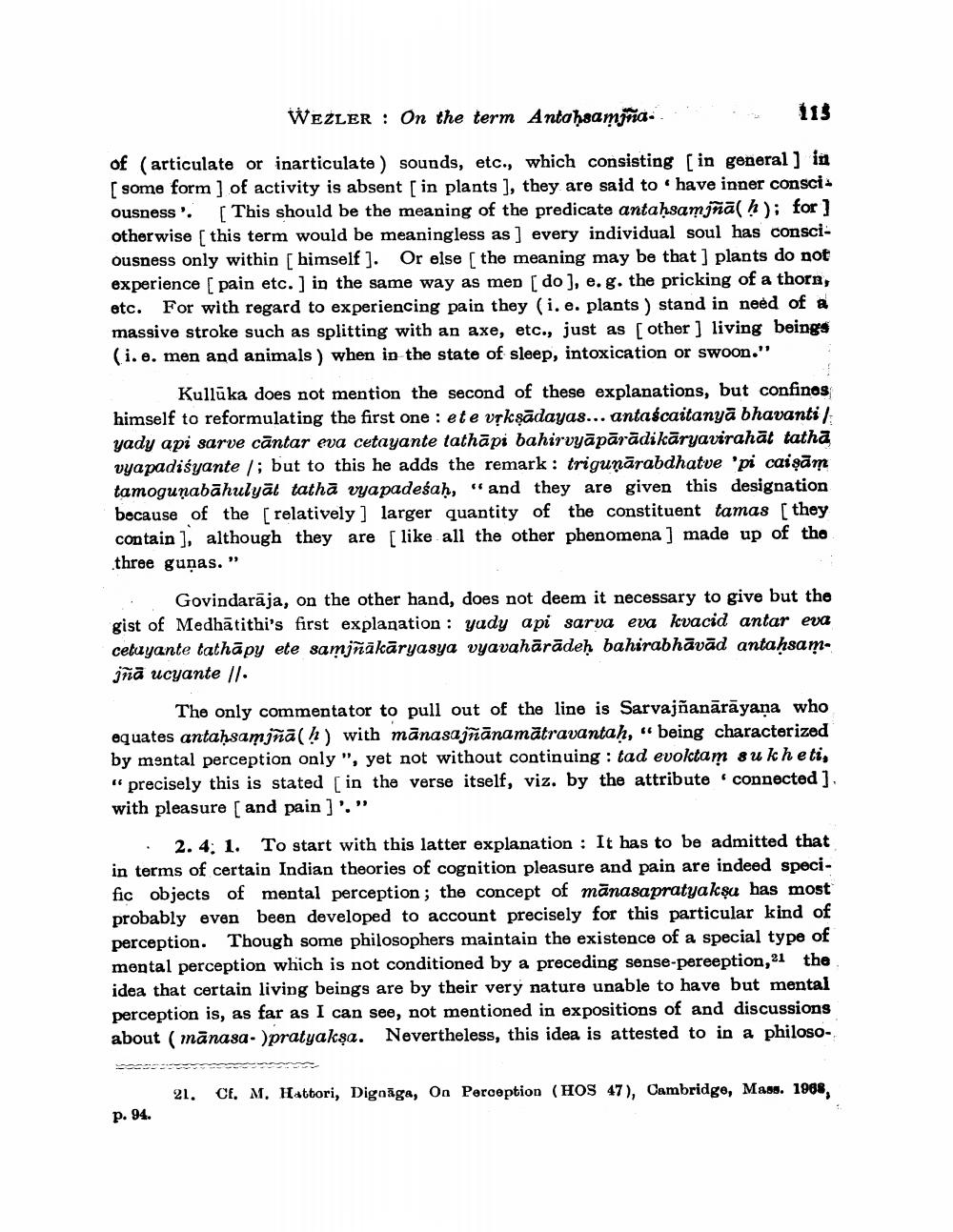Book Title: On Term Antahsamjna Author(s): A Wezler Publisher: A Wezler View full book textPage 5
________________ WEZLER : On the term Antaheamiña. 113 of (articulate or inarticulate ) sounds, etc., which consisting (in general ] in ( some form ] of activity is absent [in plants ], they are said to have inner consciousness'. [This should be the meaning of the predicate antaḥsamiñal "); for ] otherwise (this term would be meaningless as ] every individual soul has consciousness only within [ himself ). Or else [ the meaning may be that] plants do not experience pain etc. ) in the same way as men ( do ), e.g. the pricking of a thorn, etc. For with regard to experiencing pain they (i. e. plants ) stand in need of a massive stroke such as splitting with an axe, etc., just as other ] living beings (i.e. men and animals) when in the state of sleep, intoxication or swoon." Kullūka does not mention the second of these explanations, but confinos himself to reformulating the first one : ete vrkşādayas... antascaitanyā bhavanti yady api sarve cantar eva cetayante tathāpi bahirvyāpārādikāryavirahāt tatha vyapadiśyante /; but to this he adds the remark : trigunārabdhatve 'pi caiņām tamoguņabāhulyāt tathā vyapadeśaḥ, "and they are given this designation because of the [relatively ) larger quantity of the constituent tamas (they contain ), although they are [ like all the other phenomena ] made up of tho three gunas.” 1. Govindarāja, on the other hand, does not deem it necessary to give but the gist of Medhātithi's first explanation : yady api sarva eva kvacid antar eva cetuyante tathāpy ete samjñākāryasya vyavahārādeḥ bahirabhāvād antaḥsamjñā ucyante 11. The only commentator to pull out of the line is Sarvajñanārāyana who equates antaḥsamiña(h) with mānasajñānamātravantah, “ being characterized by mental perception only ", yet not without continuing : tad evoktam sukheti, " precisely this is stated in the verse itself, viz. by the attribute connected] with pleasure [ and pain ]'." . 2. 4: 1. To start with this latter explanation : It has to be admitted that in terms of certain Indian theories of cognition pleasure and pain are indeed specific objects of mental perception; the concept of mānasapratyakşu has most probably even been developed to account precisely for this particular kind of perception. Though some philosophers maintain the existence of a special type of mental perception which is not conditioned by a preceding sense-pereeption, 21 the idea that certain living beings are by their very nature unable to have but mental perception is, as far as I can see, not mentioned in expositions of and discussions about (mānasa. )pratyakşa. Nevertheless, this idea is attested to in a philoso 21. Cf. M. Hattori, Dignāga, On Perception (HOS 47), Cambridge, Mass. 1968, p. 94.Page Navigation
1 ... 3 4 5 6 7 8 9 10 11 12 13 14 15 16 17 18 19 20 21
